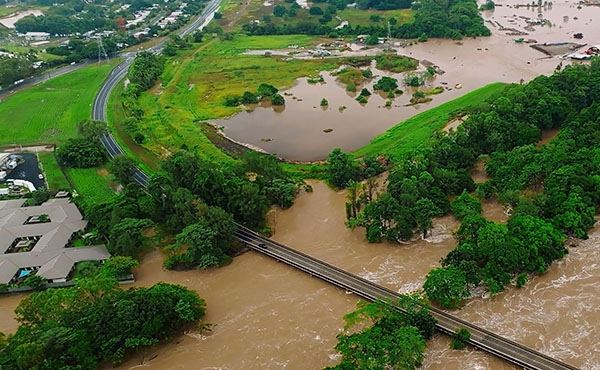Grading statements — Impacts on ecological, heritage, economic and social values
Few or no impacts have been observed and accepted predictions indicate that future impacts on the Region’s ecological, heritage, economic or social values are minor.
Some minor impacts have already been observed and there is concern that, based on predictions, there will be significant but localised impacts on the Region’s ecological heritage, economic or social values.
Current and predicted future impacts are likely to significantly affect the Region’s ecological, heritage, economic or social values. Concern about serious ecosystem, heritage economic or social effects within the next 20–50 years.
Current and predicted future impacts are likely to irreversibly destroy much of the Region’s ecological, heritage, economic or social values. Widespread and serious ecosystem, heritage, economic or social effects likely within the next 10–20 years.
or
Borderline Indicates where a component or criterion is considered close to satisfying the adjacent grading statement.
Confidence
Adequate high-quality evidence and high level of consensus
Limited evidence or limited consensus
Inferred, very limited evidence
Climate change has had a widespread impact on ecological values fundamental to the Region’s identity. Repeated mass coral bleaching events in 2020 and 2022 have affected the Reef’s ecosystems. Evidence of cascading effects of coral loss on fish and invertebrate abundance and diversity continue to emerge. The strong influence of climate change exacerbates the cumulative pressures of land-based runoff, coastal development and direct use. The ongoing cumulative pressures of these local and global factors are likely to continue to affect the Reef’s ecosystems and may limit the potential for ecological recovery.
Current and predicted climate change impacts will have far-reaching and irreversible consequences in the Region. Ocean warming, sea-level rise and ocean acidification are predicted to worsen over the next decades. While Reef ecosystems are resilient and can recover from impacts, increasing occurrences of widespread coral bleaching (including those caused by marine heatwaves in 2016, 2017, 2020 and 2022) are exceeding the limits of tolerance of reef organisms to climate change.
Over the past 5 years, the extent of new coastal development has been minor, especially due to 2 years of decreased growth due to the COVID-19 pandemic. However, Queensland’s populations are projected to grow in the coming decades, increasing pressures in the Region. Legacy and new coalmines in the Region’s Catchment can further exacerbate the effects of climate change.
Improvements in water quality across most inshore areas of the Reef are encouraging, despite slow progress towards reducing pollutant loads in adjacent catchments. Recovery of nearshore ecosystems is closely linked to increased water quality, as evidenced by improving condition of seagrass meadows in the northern regions. Impacts are generally decreased despite lag times with catchment improvements and considerable natural variability.
Changes across direct uses were driven by increasing population, management of the COVID-19 pandemic and fisheries reforms. Reductions in direct use through the pandemic have now mostly reversed. Certain impacts from fishing remain. The cumulative impacts of extraction and damage to the Reef by direct use, coupled with smaller recovery windows, will affect ecosystem resilience into the future.


